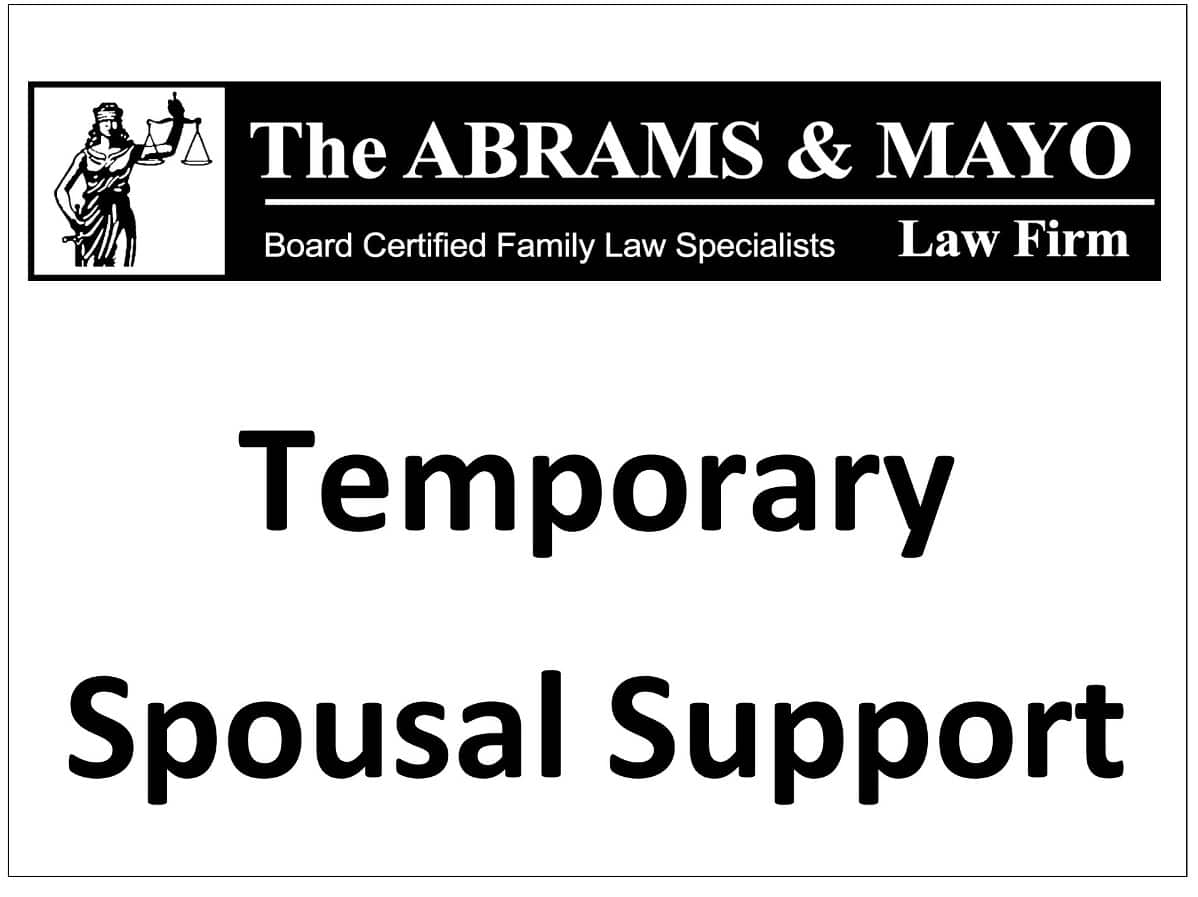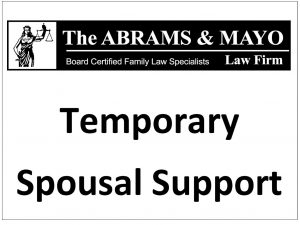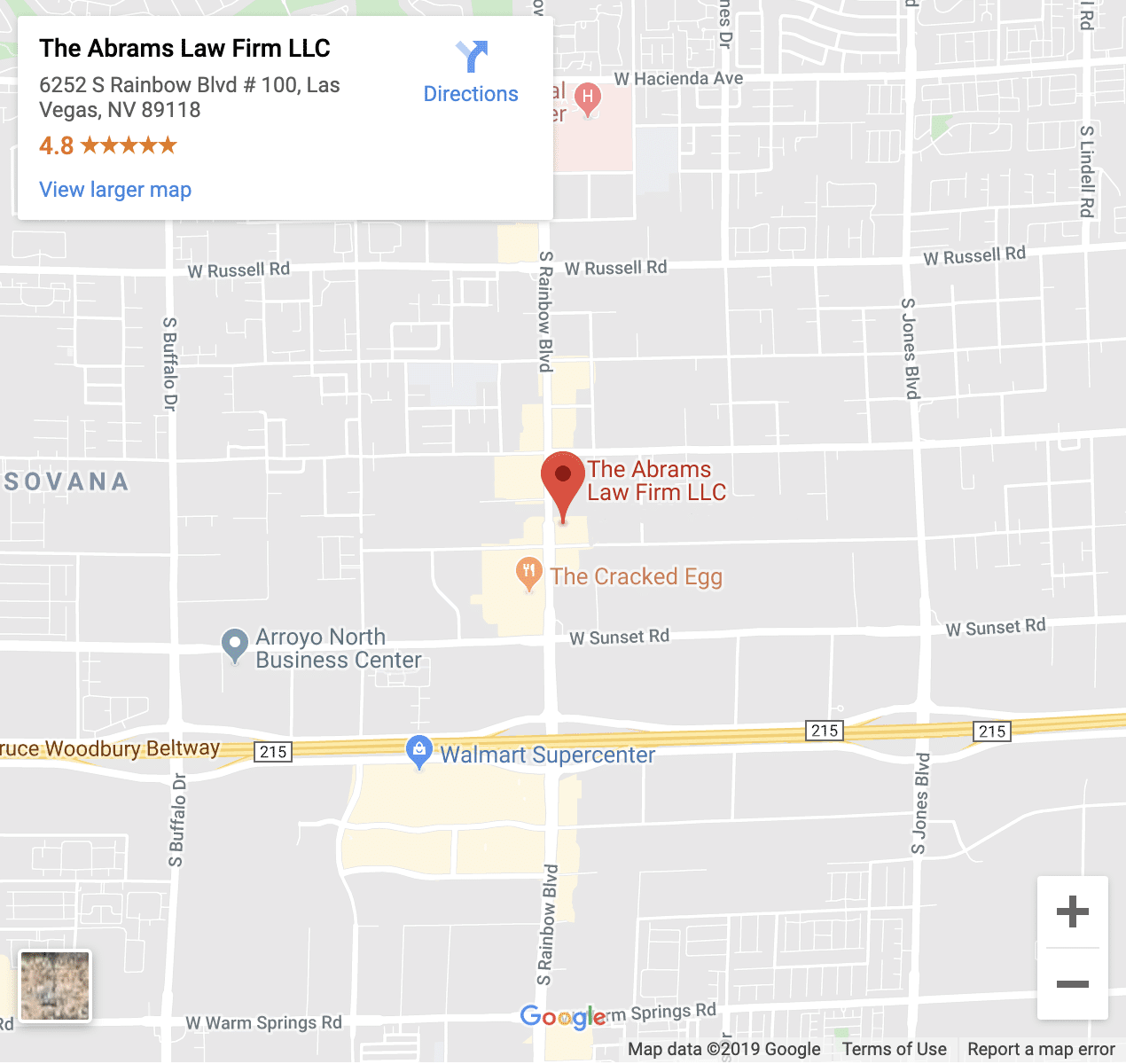
Businesses owned by either or both spouses are subject to property division during divorce proceedings. In some instances there is a valid prenuptial or post-nuptial agreement that addresses what happens to the business in the event of divorce. Nevada is a community property state. So if there is no such agreement, the business is subject to property division in the divorce proceedings like any other marital asset.
What is the Business Worth?
In order to resolve property division, one of the most important factors is assessing what the business is worth. The amount requires the work of business valuators. Business valuators are licensed professionals who consider the details of a business and form an opinion on its value.
Each business has unique assets and debts. So no two businesses, and therefore their values, are identical, even within the same industry. In some cases, the divorce attorneys representing each party agree on the choice of a business valuator. In other instances, each party retains their own valuator and the findings of each are then compared for similarities and differences. Each spouse’s divorce attorney then negotiates, or litigates, to determine a final value.
The Business Valuation Process
The valuation process includes an analysis of the company’s financials as well as numerous other factors. The business valuator considers whether the business has hard assets such as real estate or equipment, and/or intangible assets such as licensing agreements or goodwill. The valuator also examines financial documents including bank statements, inventory reports, tax returns, profit and loss statements, accounts receivable and payable reports.
Real property owned by the business can be a significant asset. If necessary, the business valuator may require the assistance of a certified real estate appraiser that specializes in commercial real estate. The same can be true for commercial equipment. Depending on the type, age, and amount of business equipment, a separate expert’s opinion as to the value of the equipment may be required.
Some businesses rely heavily on the value of intangible assets. Tech and celebrity related businesses often have a portion of their value based on these types of assets. Intangible assets can include the value of a celebrity name, intellectual property rights, exclusive or non-exclusive licensing agreements, patents and trademarks.
Professional Practices
Professional practice businesses often have the intangible asset of “goodwill”. This means that there is a business value as a going concern and its reputation in the community which it serves. Often the goodwill is related to the holder of a special license. One or both spouses may have a medical, law, architectural, contractor or other specialty license. The license holder’s relationship to the business is a factor which complicates the property division aspects in a divorce. These intangible assets can have a wide range of value due to their abstract nature. So experienced divorce attorneys often have a list of business valuators who are well-versed in determining the value of intangibles.
Who Will Work at the Business During the Divorce?
If only one spouse works at the business, the easy answer is that the arrangement remains the same. In other instances both spouses are active in the daily operations. This complicates the matter as there is bound to be some conflict between the personal issue of divorce and the professional aspect of running a business. In the best case scenario both spouses can continue to work at the business. But this can cause unnecessary conflicts. Therefore, experienced divorce attorneys familiar with businesses and divorce are the best option to negotiate an agreement which defines the roles of each spouse until the divorce is finalized.
Who Owns the Business After the Divorce?
Business ownership can have many forms. In addition to one or both spouses, the business may have ownership interest from employees, outside investors, and/or family members. Any form of additional ownership interest adds a level of complexity and the ownership factors may affect the resolution method. Our divorce attorneys have published a comprehensive guide for business owners which goes into more detail. However, for the purposes of this article, we’ll assume that there are no other ownership interests.
Just as every divorce case is unique, so are the manners of resolution. In general some of the most common ways are:
- One spouse buys out the other
- The business is sold and the profits are divided
- Both ex-spouses continue to own the business
The most straight-forward method is for one spouse to buy out the other. This may entail trade-offs with other marital assets. For example, one spouse’s share of the equity in the marital home may be an offset. The same goes for any other marital assets subject to division in the divorce proceedings.
Another option is selling the business to a third-party and dividing the proceeds as part of a global settlement agreement. This is not typical especially in businesses where one or both of the spouses are founders. Typically, there is a strong emotional attachment to the business and selling out to a third-party is not the preferred solution.
The last option is that both ex-spouses continue to own the business after the divorce. Obviously the divorce happened for a reason and, while this option is possible, it is the most infrequent method of resolution.
Retain the Legal Counsel You Deserve
Business ownership, in any form, is a complex matter in divorce proceedings. Protect your rights with a team of divorce attorneys experienced in such matters. Our attorneys have decades of experience in guiding business owners through the myriad of options in order to achieve the best resolution. They can put your mind at ease if you are a business owner or the spouse of one and are considering divorce. They also work with clients that are considering changing divorce attorneys in active cases. Our Las Vegas divorce attorneys will speak with you directly regarding a consultation. Call our office at 702-222-4021 to speak with one of them and see if what we offer is right for you.



 Going through divorce proceedings are some of the most challenging times in one’s life. The very nature of divorce is inherently stressful even if both spouses agree on dissolving the marriage. When one or both spouses are professionals it can be even more so. The necessity of dividing marital assets and agreeing on child related issues only adds to the hectic schedules of most working professionals and can be exhausting. Resolving your divorce case lowers your stress level and allows you to move on with the rest of your life. In this article, our Las Vegas divorce attorneys discuss the most common mistakes of
Going through divorce proceedings are some of the most challenging times in one’s life. The very nature of divorce is inherently stressful even if both spouses agree on dissolving the marriage. When one or both spouses are professionals it can be even more so. The necessity of dividing marital assets and agreeing on child related issues only adds to the hectic schedules of most working professionals and can be exhausting. Resolving your divorce case lowers your stress level and allows you to move on with the rest of your life. In this article, our Las Vegas divorce attorneys discuss the most common mistakes of 
 One of the most contested issues in divorce cases concerns alimony payments. Typically one party thinks they deserve it and the other party doesn’t want to pay it, or at least not the full amount that’s being asked for. In this article our
One of the most contested issues in divorce cases concerns alimony payments. Typically one party thinks they deserve it and the other party doesn’t want to pay it, or at least not the full amount that’s being asked for. In this article our 
 Bill Gates, the world’s fourth-richest person, and his wife, Melinda, recently announced that they are getting a divorce after nearly 30 years of marriage. They have an estimated combined net worth of $144 billion. The divorce was filed in King County Superior Court in Seattle, Washington. The divorce has captured public attention and has raised a number of questions in the divorce legal field. Read on for a discussion by our
Bill Gates, the world’s fourth-richest person, and his wife, Melinda, recently announced that they are getting a divorce after nearly 30 years of marriage. They have an estimated combined net worth of $144 billion. The divorce was filed in King County Superior Court in Seattle, Washington. The divorce has captured public attention and has raised a number of questions in the divorce legal field. Read on for a discussion by our 
 Not all assets in a divorce are as simple to divide as a bank account or a house. Some assets require complex valuation and additional legal hurdles in order to be properly distributed in divorce proceedings. Pensions and other retirement accounts raise a number of valuation issues, tax concerns, and legal technicalities. Divorcing spouses with a pension plan need the guidance of experienced
Not all assets in a divorce are as simple to divide as a bank account or a house. Some assets require complex valuation and additional legal hurdles in order to be properly distributed in divorce proceedings. Pensions and other retirement accounts raise a number of valuation issues, tax concerns, and legal technicalities. Divorcing spouses with a pension plan need the guidance of experienced 
 There have been cases where one spouse wins a lottery or comes into another form of financial windfall during a Las Vegas divorce case. If you win the lottery or achieve some other significant financial upside, but are separated or in the middle of a Las Vegas divorce, what happens to your money? Do you get to keep it for yourself or are you obligated to divulge and divide it with your soon-to-be-ex? Continue reading to learn more from our
There have been cases where one spouse wins a lottery or comes into another form of financial windfall during a Las Vegas divorce case. If you win the lottery or achieve some other significant financial upside, but are separated or in the middle of a Las Vegas divorce, what happens to your money? Do you get to keep it for yourself or are you obligated to divulge and divide it with your soon-to-be-ex? Continue reading to learn more from our 
 Prenuptial agreements (also called antenuptial agreements or “prenups”) are no longer the exclusive concern of the rich and the famous. Today, they are an important consideration for any marrying couple, whether both spouses are income-earning or one spouse has significantly more wealth than the other. What many people don’t realize, until it’s too late, is that not all prenuptial agreements hold up in court. In this article, our seasoned
Prenuptial agreements (also called antenuptial agreements or “prenups”) are no longer the exclusive concern of the rich and the famous. Today, they are an important consideration for any marrying couple, whether both spouses are income-earning or one spouse has significantly more wealth than the other. What many people don’t realize, until it’s too late, is that not all prenuptial agreements hold up in court. In this article, our seasoned 
 Family comes in many forms. Many people consider their “immediate family” to include more than just the traditional “nuclear” structure and may involve cousins, aunts, uncles, and grandparents. In many families, grandparents are just as involved in the upbringing of grandchildren as are the children’s direct parents. What happens if there is a conflict between a child’s parents and grandparents? Do grandparents have any custodial or visitation rights of their own, or do the wishes of the parents always control? In this article, we discuss the legal rights of grandparents under Nevada law.
Family comes in many forms. Many people consider their “immediate family” to include more than just the traditional “nuclear” structure and may involve cousins, aunts, uncles, and grandparents. In many families, grandparents are just as involved in the upbringing of grandchildren as are the children’s direct parents. What happens if there is a conflict between a child’s parents and grandparents? Do grandparents have any custodial or visitation rights of their own, or do the wishes of the parents always control? In this article, we discuss the legal rights of grandparents under Nevada law.
 Nevada law provides for several different types of spousal support. Depending on a number of factors, if one spouse in a divorce proceeding has a higher income than the other, a court may award temporary spousal support during the length of the proceedings. This temporary support is designed to help the lower-income spouse pay for living expenses until the divorce is final. Some people confuse temporary spousal support with alimony. Alimony payments, if any, occur after the divorce proceedings have concluded. An award of temporary spousal support means that a spouse needing support doesn’t have to wait until the divorce is final. Temporary spousal support can also cover fees for your divorce attorney. Continue reading to learn about temporary spousal support and the other types of support available to you. You can also call our experienced
Nevada law provides for several different types of spousal support. Depending on a number of factors, if one spouse in a divorce proceeding has a higher income than the other, a court may award temporary spousal support during the length of the proceedings. This temporary support is designed to help the lower-income spouse pay for living expenses until the divorce is final. Some people confuse temporary spousal support with alimony. Alimony payments, if any, occur after the divorce proceedings have concluded. An award of temporary spousal support means that a spouse needing support doesn’t have to wait until the divorce is final. Temporary spousal support can also cover fees for your divorce attorney. Continue reading to learn about temporary spousal support and the other types of support available to you. You can also call our experienced 
 When you divorce, all of your income and assets obtained during the divorce are subject to distributions that are not covered in a pre or post-marital agreement. Not all forms of income are treated the same, but all may come into play. There are special rules for certain assets such as pension funds, retirement benefits, and Social Security benefits. In this article, our
When you divorce, all of your income and assets obtained during the divorce are subject to distributions that are not covered in a pre or post-marital agreement. Not all forms of income are treated the same, but all may come into play. There are special rules for certain assets such as pension funds, retirement benefits, and Social Security benefits. In this article, our 
 In Nevada, all marital or community property is subject to division upon divorce. Community property includes all assets acquired during the marriage, with limited exceptions (such as inheritance and gifts specifically to one party, or assets covered in a pre or post-marital agreement). Generally, separate property is property already in possession of each party before the marriage. Separate property is not subject to division in the divorce. However, matters become complicated when separate and community property are commingled together. Read on for an explanation from our expert
In Nevada, all marital or community property is subject to division upon divorce. Community property includes all assets acquired during the marriage, with limited exceptions (such as inheritance and gifts specifically to one party, or assets covered in a pre or post-marital agreement). Generally, separate property is property already in possession of each party before the marriage. Separate property is not subject to division in the divorce. However, matters become complicated when separate and community property are commingled together. Read on for an explanation from our expert 
 The family court’s decree of divorce is intended to be the final word on the various issues involved in the divorce, including property division, child custody, and alimony. The courts, however, recognize that not everything can be set in stone. Life circumstances may change and a set alimony award may become inappropriate in the future. If your alimony arrangement no longer works for you, what are your options? In this article, our experienced Las Vegas divorce attorneys explain the circumstances and how alimony can be modified.
The family court’s decree of divorce is intended to be the final word on the various issues involved in the divorce, including property division, child custody, and alimony. The courts, however, recognize that not everything can be set in stone. Life circumstances may change and a set alimony award may become inappropriate in the future. If your alimony arrangement no longer works for you, what are your options? In this article, our experienced Las Vegas divorce attorneys explain the circumstances and how alimony can be modified.
 Typically, the parentage of children to a marriage is clear: The married parties are the legal parents of the children. If, however, there is a question as to the identity of the biological father, or if the children are from a previous relationship, then issues of paternity might arise. In a divorce, it is important for all parties to know and establish their legal status with regards to any children. If the husband’s paternity is unknown or unclear, there could be legal consequences for the paternity issues in a Las Vegas divorce.
Typically, the parentage of children to a marriage is clear: The married parties are the legal parents of the children. If, however, there is a question as to the identity of the biological father, or if the children are from a previous relationship, then issues of paternity might arise. In a divorce, it is important for all parties to know and establish their legal status with regards to any children. If the husband’s paternity is unknown or unclear, there could be legal consequences for the paternity issues in a Las Vegas divorce.
 Divorce mediation is a form of alternative dispute resolution under which divorcing spouses mutually agree to negotiate toward a settlement. This is done with the help of a neutral third-party divorce mediator. The mediator does not issue binding decisions like a court. Instead a mediator helps resolve the issues and bring the parties together to reach a final agreement. Divorce mediation is generally preferable over litigation for several reasons. There are, however, a few drawbacks to mediation. We discuss the pros and cons of
Divorce mediation is a form of alternative dispute resolution under which divorcing spouses mutually agree to negotiate toward a settlement. This is done with the help of a neutral third-party divorce mediator. The mediator does not issue binding decisions like a court. Instead a mediator helps resolve the issues and bring the parties together to reach a final agreement. Divorce mediation is generally preferable over litigation for several reasons. There are, however, a few drawbacks to mediation. We discuss the pros and cons of 
 Even an uncontested divorce can be emotionally challenging, combining feelings of loss and any number of other emotions. But when the divorce is contested, dealing with an angry ex can make the process even worse. Contested divorces are likely to last longer than uncontested divorces, involve significant conflict, and thus carry higher legal fees. In this article our
Even an uncontested divorce can be emotionally challenging, combining feelings of loss and any number of other emotions. But when the divorce is contested, dealing with an angry ex can make the process even worse. Contested divorces are likely to last longer than uncontested divorces, involve significant conflict, and thus carry higher legal fees. In this article our 
 While divorces among younger age groups have leveled off or even begun to slightly drop in recent years, divorces among couples aged 50 or older have skyrocketed over the last three decades. Sociologists suggest that many factors have led to the rise in these so-called gray divorces including:
While divorces among younger age groups have leveled off or even begun to slightly drop in recent years, divorces among couples aged 50 or older have skyrocketed over the last three decades. Sociologists suggest that many factors have led to the rise in these so-called gray divorces including:
 Divorce is complicated enough when dealing with standard marital assets such as bank accounts and family homes. And when one or both parties to the divorce have an ownership stake in a business, matters can quickly become even more complex. Is business ownership subject to division in divorce? How do you value or apportion business ownership? In this article, our
Divorce is complicated enough when dealing with standard marital assets such as bank accounts and family homes. And when one or both parties to the divorce have an ownership stake in a business, matters can quickly become even more complex. Is business ownership subject to division in divorce? How do you value or apportion business ownership? In this article, our 
 Divorce is an opportunity to kick-start the next phase of your life. You get to decide who you want to be after your divorce. That could mean finding new hobbies, moving to a new location, getting a new job, or starting a new relationship. While you are not legally prohibited from dating while the divorce is still pending, there are important considerations to take into account in deciding whether to do so or not. If you do choose to date, you need to consider the affects it will have on your pending divorce case. Experienced
Divorce is an opportunity to kick-start the next phase of your life. You get to decide who you want to be after your divorce. That could mean finding new hobbies, moving to a new location, getting a new job, or starting a new relationship. While you are not legally prohibited from dating while the divorce is still pending, there are important considerations to take into account in deciding whether to do so or not. If you do choose to date, you need to consider the affects it will have on your pending divorce case. Experienced 
 Child custody disputes are often emotionally-charged and complex. When one or both parents maintain a residence outside the United States or are considering relocating to a foreign jurisdiction, many additional complications are likely to arise. Below, our seasoned
Child custody disputes are often emotionally-charged and complex. When one or both parents maintain a residence outside the United States or are considering relocating to a foreign jurisdiction, many additional complications are likely to arise. Below, our seasoned 
 Every divorce involves the distribution of marital property in some form. Different states have different rules about what constitutes marital property. Complicating the divorce process are issues such as separate property before marriage and prenuptial and post nuptial agreements. These are some of the different factors family courts will use in evaluating who gets what share of which property. Below, our experienced
Every divorce involves the distribution of marital property in some form. Different states have different rules about what constitutes marital property. Complicating the divorce process are issues such as separate property before marriage and prenuptial and post nuptial agreements. These are some of the different factors family courts will use in evaluating who gets what share of which property. Below, our experienced 